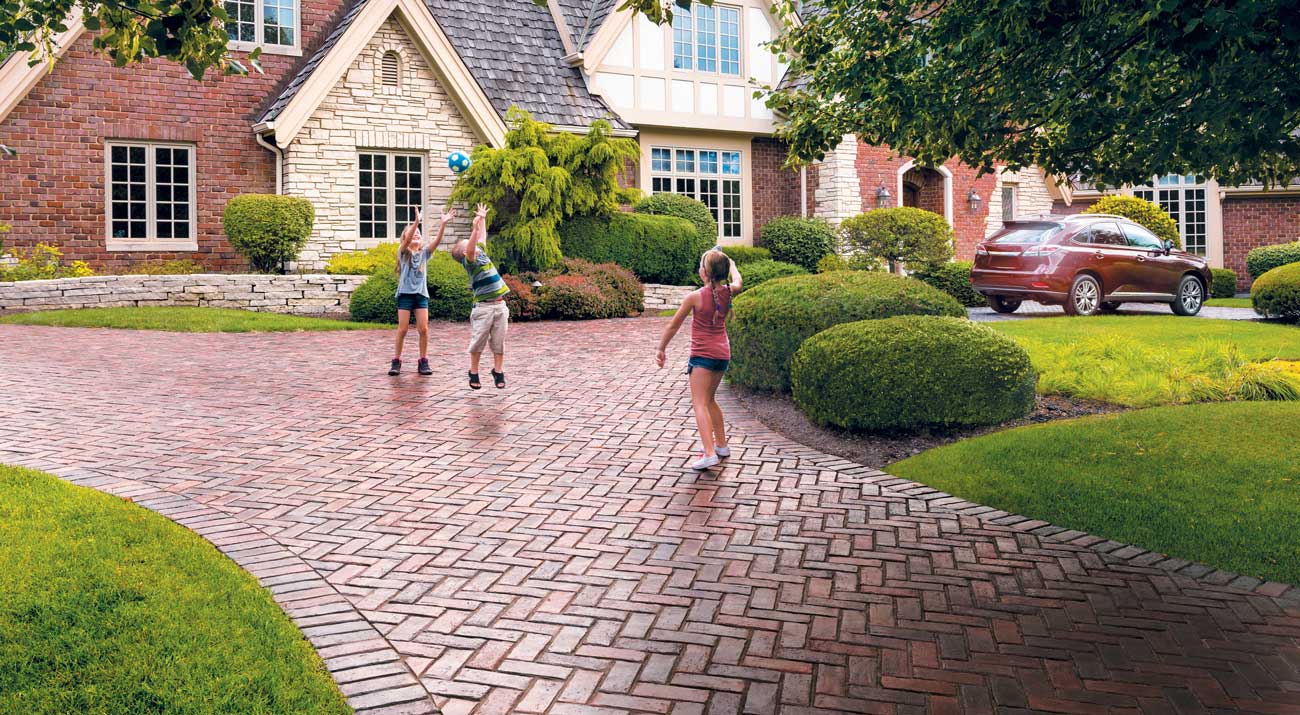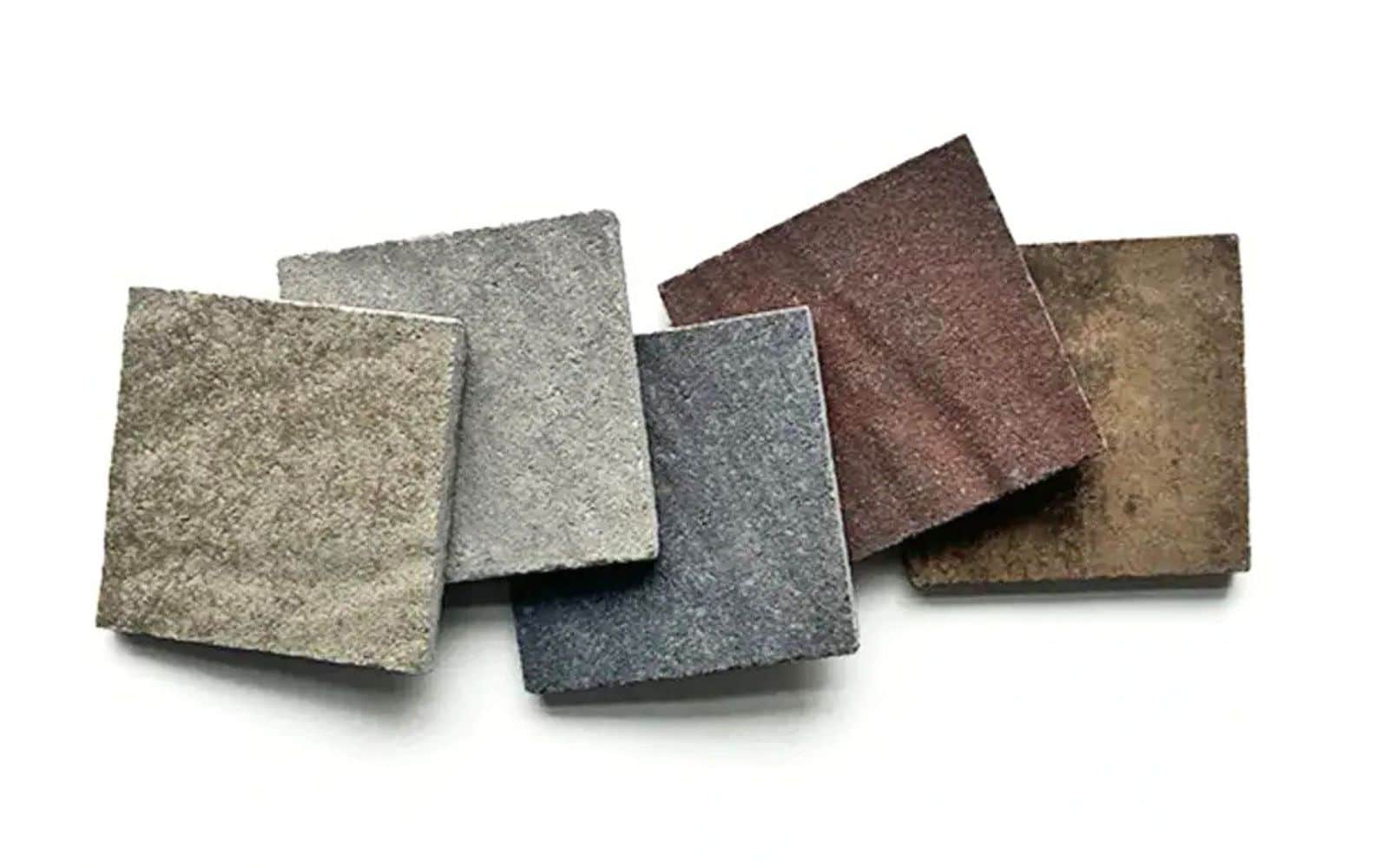Driveway Pavers: Transform Your Home’s Curb Appeal with Durable, Beautiful Solutions
Create a stunning entrance that withstands decades of use while adding significant value to your property.
Upgrade Your Driveway with Premium Paving Solutions That Last 25-50 Years
Stop dealing with cracked concrete slabs and deteriorating asphalt surfaces that require constant repairs. Driveway pavers offer homeowners a permanent solution that combines exceptional durability with unlimited design possibilities. Whether you’re planning a new installation or replacing an existing driveway, pavers deliver superior performance and beautiful appearance that enhances your home’s curb appeal for decades.

Unilock Town Hall driveway in 3-Color Blend, showing durable and aesthetic outdoor paving.
Why Choose Driveway Pavers Over Traditional Options?
Transform your property with paving solutions that outperform concrete and asphalt in every category. Here’s why smart homeowners choose pavers:
- Exceptional Longevity – Last 25-50 years compared to 10-15 years for asphalt driveways
- Weather Resistance – Withstand freeze-thaw cycles without cracking like concrete slabs
- Easy Repairs – Replace individual stones instead of repaving entire sections
- Eco-Friendly Options – Permeable pavers reduce stormwater runoff and prevent erosion
- Unlimited Design Flexibility – Choose from countless patterns, colors, and materials to match your home
With proper installation on a solid base, your paver driveway becomes a permanent enhancement that continues to add value year after year.
Driveway Materials Comparison
| Feature | Pavers | Concrete Slabs | Asphalt |
|---|---|---|---|
| Lifespan | 25-50 years | 15-20 years | 10-15 years |
| Repair Cost | Replace individual stones | Resurface entire section | Patch or resurface |
| Weather Resistance | Excellent | Susceptible to cracking | Softens in heat |
| Design Options | Unlimited | Limited | Very limited |
| Maintenance | Low maintenance | Moderate | High |
How Driveway Paver Installation Works
Professional installation ensures your investment delivers maximum value and longevity. Here’s the proven process that creates durable, beautiful results:
Step 1: Site Preparation and Base Construction Proper excavation and grading establish the foundation for long-term performance. Contractors remove existing material and create a stable base using crushed gravel that prevents settling and supports heavy loads.
Step 2: Sand Bedding and Edge Restraints A level sand bedding layer allows for precise paver placement while edge restraints secure the perimeter and prevent shifting over time.
Step 3: Paver Installation and Pattern Creation Each stone is carefully laid according to your chosen design pattern, creating interlocking surfaces that distribute weight evenly across the base.
Step 4: Joint Sand and Final Compaction Fine sand fills gaps between pavers and locks the entire surface together, creating a unified, stable driveway ready for immediate use.
Timeline: Most residential driveways are completed within 3-5 days, weather permitting.
Types of Driveway Pavers: Find Your Perfect Match
Select from premium materials designed to meet different budgets, aesthetic preferences, and performance requirements.
Concrete Pavers
The most popular choice for residential driveways, offering excellent value and versatility. These manufactured stones provide consistent quality and come in numerous shapes, colors, and patterns to match any architectural style.
- Cost Range: $10-25 per square foot installed
- Strength: 8,000+ PSI compressive strength
- Advantages: Wide variety of options, suitable for all climates, easy to match with existing walkways and patios
- Best For: Budget-conscious homeowners wanting durable, attractive results
Brick Pavers
Traditional clay construction delivers timeless appeal with superior strength ratings. These natural material options offer classic beauty that complements both historic and contemporary homes.
- Cost Range: $10-30 per square foot installed
- Strength: 12,000 PSI compressive strength
- Advantages: Higher strength than concrete, excellent for heavy vehicle traffic, individual replacement capability
- Considerations: May experience minor flaking in extreme weather conditions
Natural Stone Pavers
Premium materials including granite, limestone, and basalt provide unmatched durability and luxury appearance. These stones offer the highest long-term value with potential to last over a century.
- Cost Range: $40-70 per square foot installed
- Durability: Exceptional – suitable for the heaviest residential applications
- Advantages: Unique natural beauty, maximum property value increase, available in various sizes
- Best For: Homeowners seeking premium, permanent solutions
Permeable Pavers
Eco-friendly options that allow rainwater to penetrate through joints and seep into the soil below. These permeable systems reduce runoff, prevent erosion, and help meet environmental regulations.
- Cost Range: $10-40 per square foot installed
- Environmental Benefits: Reduces stormwater runoff, prevents water pooling, filters pollutants
- Applications: Ideal for slopes, areas with drainage issues, or green building requirements
- Fill Options: Can be filled with grass, gravel, or decorative stone

Design Ideas and Pattern Options
Create distinctive outdoor spaces that elevate your home’s appearance and blend seamlessly with existing walkways, patios, and pool decks.
Popular Laying Patterns:
- Herringbone: Interlocking design provides maximum strength for heavy traffic
- Running Bond: Classic linear pattern suitable for traditional and modern homes
- Basketweave: Square pavers laid in alternating directions for visual interest
- Random Ashlar: Natural stone pattern that creates organic, flowing appearance
Color and Design Considerations:
- Match paver colors with your home’s exterior materials and trim
- Use border patterns to define edges and add visual appeal
- Blend multiple colors for subtle variation and natural appearance
- Consider how patterns will look from different viewing angles
Pro Tip: Order extra pavers for future repairs and to account for natural color variation between production batches.
Driveway Paver Costs and Installation Options
Understanding the investment helps you plan effectively and select options that fit your budget while maximizing long-term value.
Cost Breakdown for Typical Projects:
- Materials: $5-15 per square foot (varies by paver type and size)
- Installation: $5-15 per square foot (includes base preparation, laying, and finishing)
- Additional Costs: Permits, excavation of existing surface, drainage improvements
Size Considerations: Standard paver sizes range from 4×8 inches for traditional brick patterns to 24×24 inches for contemporary designs. Larger sizes cover more ground quickly but may limit pattern options.
DIY vs. Professional Installation: While some homeowners attempt DIY installation, professional contractors ensure proper base preparation, correct slope for drainage, and warranty coverage. Poor installation can lead to settling, uneven surfaces, and premature failure.
Return on Investment: Quality paver driveways typically recoup 70-80% of installation costs in increased property value, making them one of the best landscaping investments for homeowners.
Maintenance and Longevity
Proper care ensures your paver driveway maintains its beautiful appearance and structural integrity for decades.
Regular Maintenance Requirements:
- Cleaning: Sweep regularly and wash with water to remove debris and prevent staining
- Sealing: Optional but recommended every 3-5 years to enhance color and protect against stains
- Weed Control: Apply polymeric sand or herbicides to prevent grass and weeds in joints
- Winter Care: Use calcium chloride instead of rock salt to prevent surface damage
Seasonal Considerations: Spring inspections allow you to identify and address any winter damage early. Fall preparation includes cleaning gutters to prevent water from washing away joint sand.
Individual Paver Replacement: One major advantage over concrete slabs is the ability to replace damaged stones without affecting surrounding areas. Keep spare pavers for quick repairs when needed.
Expected Lifespan: With proper installation and maintenance, concrete pavers last 25-30 years, brick pavers 25-50 years, and natural stone pavers can continue performing for over a century.
Product Request
"*" indicates required fields
